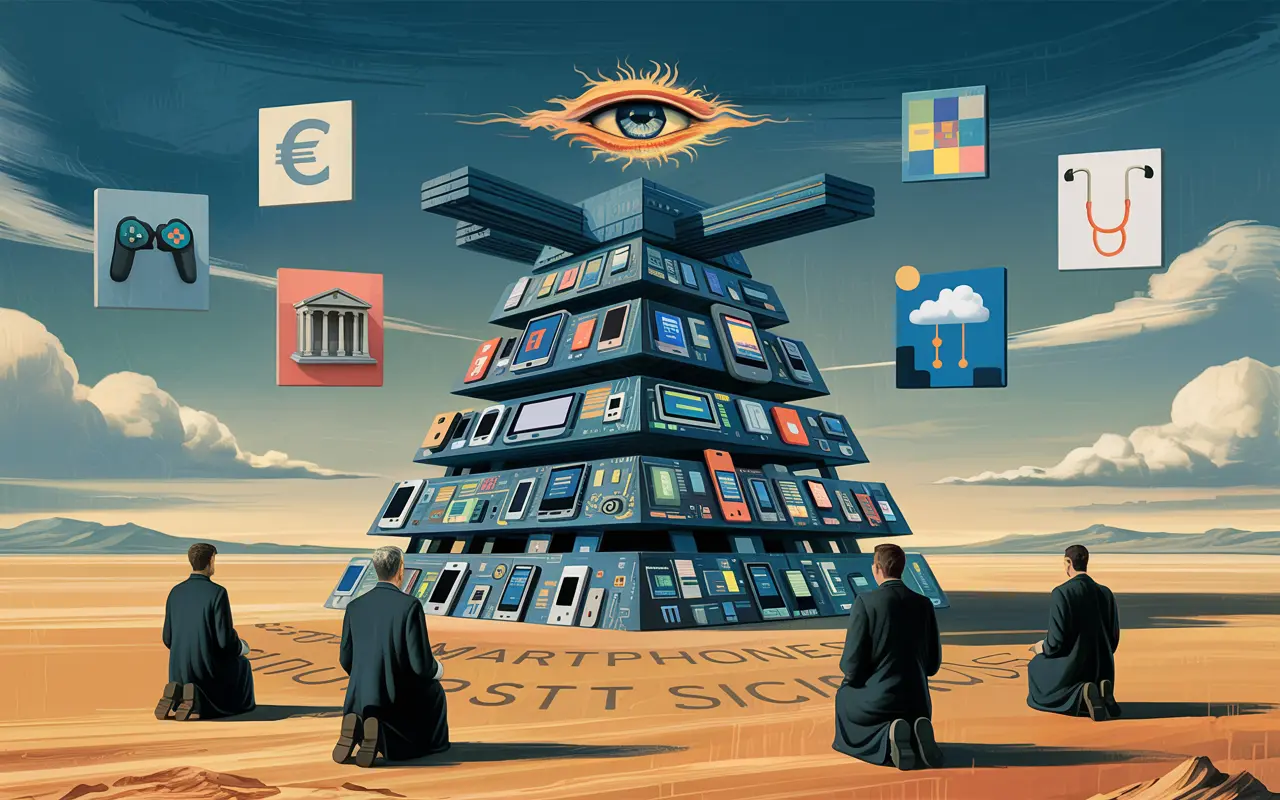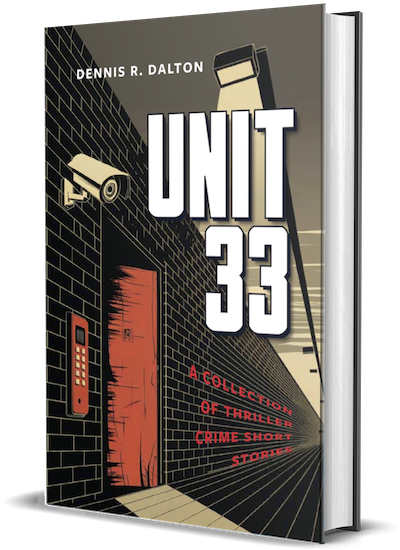
Smartphones to Smart Decisions: AI's Expanding Influence
From Blackberry to Big Brother? How Our Trust in Tech Took Root
During the early days of President Obama’s presidency, headlines buzzed with concern: he refused to give up his Blackberry. Despite the Secret Service’s objections and the offer of a highly secured government-issued phone, Obama insisted his Blackberry was secure enough. That’s saying something. Eventually, he gave in—and presumably, the device was laid to rest in a sock drawer alongside old receipts and a couple of cufflinks. Isn’t that where most men put their discarded tech, just in case?
At one point, Blackberry dominated the smartphone market. But as quickly as they rose, they disappeared from the mobile space entirely—only to resurface as a player in cybersecurity and the Internet of Things (IoT). Their pivot is part of a much bigger story: how data, AI, and algorithms moved from the fringes of curiosity to the center of our daily lives.
AI in the 1980s: The Origins of a Predictive Machine
My own introduction to Artificial Intelligence came back in the mid-1980s while working with DePaul University in Chicago. We were experimenting with ways to detect employee fraud—before it even happened. It was clunky, often unreliable, and primitive by today’s standards, but it gave us something we hadn’t had before: a way to build baselines for spotting potential criminal intent. Even then, the idea was simple—use patterns to predict behavior.
And now? That early experimental tech has evolved into systems that can comb through oceans of metadata in real time and spit out decisions faster than we can blink.
The Expanding Core: What AI Is—and Isn’t
At its heart, AI is driven by algorithms—formulas that learn from data and optimize results. Trying to unpack the mechanics behind it would take us down a rabbit hole well beyond our scope here. But what matters is this: AI is no longer a future technology. It’s embedded in our homes, cars, offices, and even toothbrushes
It analyzes patterns, tests hypotheses, and projects outcomes—often with eerie accuracy and speed.
Scary stuff. Powerful stuff.
From Human vs. Machine to Embedded Intelligence
There was a time when it was amazing to see someone sit alongside a mainframe computer and challenge it to a contest as to which was faster in calculating complex mathematical equations—machine or the human brain. I recall sitting in my high school auditorium watching in amazement as our math teacher took on a computer and won each round. That was in 1963.
Today the landscape is much different. Smartphones can manipulate space launches as a matter of routine and track satellites across the globe.
Video Games, Generative AI, and the Rise of Human-Like Non-Playable Characters
Many people first encounter AI through gaming. Trying to outwit a digital opponent is a familiar thrill. Most of those systems still rely on scripted decision trees rather than true learning—but that’s starting to change.
At the 2024 Game Developers Conference, Ubisoft showcased a prototype called Bloom, a conversational AI-powered Non-playable characters (NPC~~) designed to enable more natural, personalized player interaction. Though still experimental, it points to a future where games respond and adapt like human opponents.
Metadata, Decision-Making, and the Corporate AI Revolution
The ability to gather data has always been powerful. But now, we’re collecting metadata—data about the data itself. It tells us how, when, and under what conditions information was generated. This deeper layer of analysis is reshaping industries.
Corporations now use AI not only to process information, but also to make it meaningful. According to Forbes, AI platforms are helping reduce R&D cycles by half and cut operating costs through smarter automation.
It can analyze information, draw conclusions, and make decisions.
In short: AI helps you decide faster—and often better.
Marketing Gets Personal: AI Knows What You Want—Before You Do
Lest the field of marketing miss an opportunity to exploit would-be consumers, it should come as no surprise that marketers have embraced AI. Platforms like LTV.ai analyze your past purchases, your browsing habits, even the weather outside your window—and then send you messages tailored just for you.
The result? Emails that reference not just what you bought—but what the weather is like outside your window. It’s not just about selling. It’s about knowing when and how to sell, without you even realizing you’re being pitched.
Surveillance, Espionage, and Predictive Policy Models
For me, it is interesting to follow how AI is being used in the world of politics and governmental decision-making—not to mention in matters of espionage and protecting both tangible and intangible asset protection.
Economists are using it to improve the accuracy of forecasting and policy analysis. A recent German study showed that AI was able to boost prediction accuracy of European Central Bank rate decisions from 70% to 80%, just by analyzing subtle linguistic cues in official statements.
Source: Reuters, April 16, 2025
From eBay to Executive Orders: Everyday AI Has Arrived
This isn’t theory. AI is already in your life, often in places you don’t notice.
I use AI when I post on eBay. They encourage its use when listing an item by providing a link that offers descriptors to make my posting stronger and more intriguing. In the end, AI will write the item description entirely.
You may use it, without being aware, when you ask for assistance from Siri and Alexa.
Even the President got involved. On April 23, 2025, an executive order was signed to bring AI into every K–12 classroom. The goal: ensure future workers are fluent in the very systems that are reshaping our world.
AI in Academia: The Catch in the Code
But it’s not all upside. In education, AI tools like ChatGPT and Bard can generate content on nearly any topic. Still, if a student is required to cite verified sources, things get tricky. Some tools fabricate citations. Others pull from articles with unknown credibility.
So while AI can write a paper, it still can’t always pass the professor’s footnote check. Trust, verification, and human discernment still matter.
Forecasting the Future: Science Fiction or Just Around the Corner?
It may sound like science fiction, but imagine this: using metadata to analyze sixth graders’ behaviors in hopes of identifying potential presidential candidates thirty years from now. As strange as it sounds, predictive modeling can be pushed that far.
Still, researchers caution against overreach. Human behavior is fluid. The further out we try to predict, the less stable our models become.
The Moral Fault Lines: Innovation, Exploitation, and the Criminal Mind
When scientists were developing the atomic bomb, many argued against it, fearing that in the wrong hands, it could create global chaos. Some of those fears were ignored. History shows us what happened next.
Artificial Intelligence isn’t a bomb—but it has the potential to change the global balance of power just as much. The question we must ask is: Who gets to use it, who gets to control it—and what happens when it slips into the wrong hands?
Masters of Technology or Architects of Chaos?
In his first public homily, Pope Leo XIV warned that AI poses “new challenges for the defense of human dignity, justice and labor,” urging the Church to respond with ethical clarity and protect the vulnerable.
Around the same time, the Trump administration issued an executive order titled “Advancing Artificial Intelligence Education for American Youth.” This initiative aims to integrate AI education into K–12 schools, stating: “By establishing a strong framework that integrates early student exposure with comprehensive teacher training and other resources for workforce development, we can ensure that every American has the opportunity to learn about AI from the earliest stages of their educational journey.”
The tension between these perspectives—one urging caution and ethical oversight, the other promoting rapid adoption and education—reflects a critical moment in our technological evolution. Are we teaching a generation to master this new power responsibly, or are we simply building the intellectual infrastructure for the next great arms race?
Just a few things to think about…


